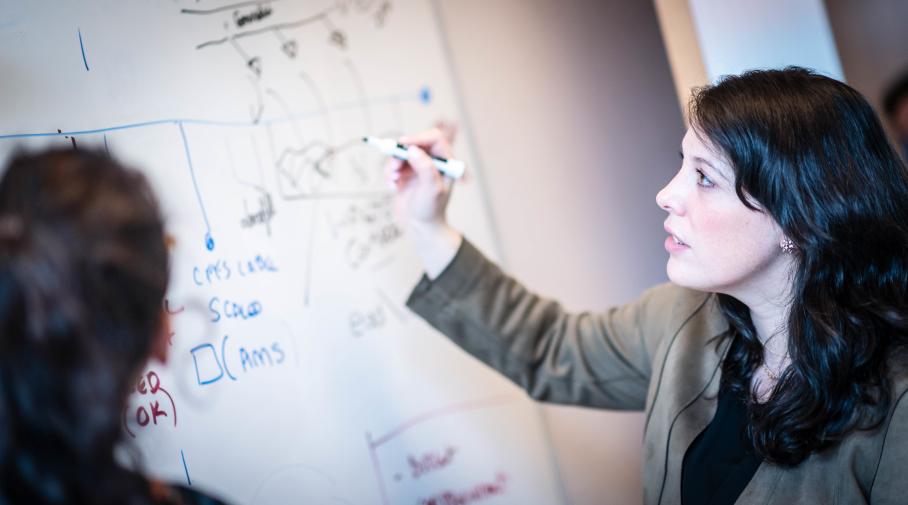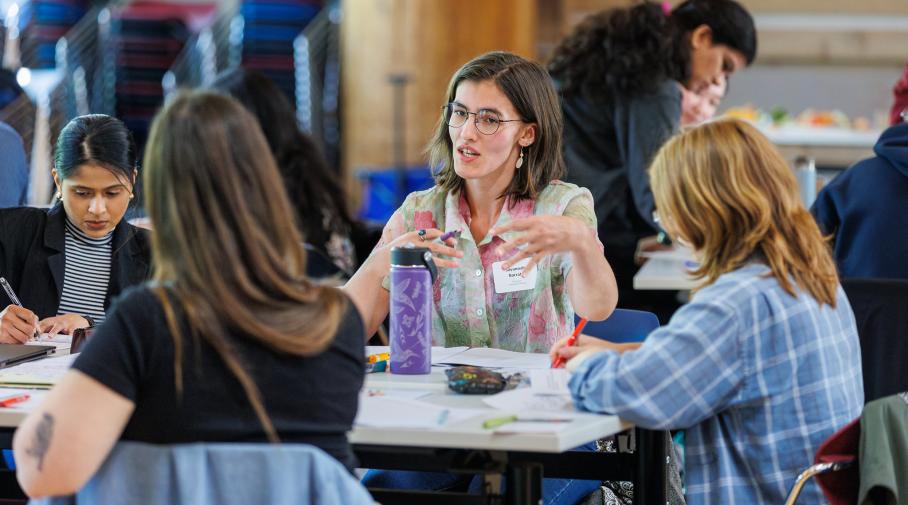2025 UBC Vancouver CLL Fund Competition

2025 UBC Vancouver Campus as a Living Lab Fund Competition
The 2025 UBC Vancouver Campus as a Living Lab (CLL) Fund Competition offers up to $500,000 in total seed funding to support innovative, interdisciplinary projects led by UBC Vancouver faculty and staff. Projects should advance sustainability through academic–operational collaboration and use the campus as a testbed for real-world impact.
Since 2020, the UBC Vancouver CLL Fund Competition has supported sixteen cross-disciplinary projects across more than ten academic departments and fifteen operational units. This year’s competition marks the first call under our new bi-annual competition model. We welcome bold, creative proposals that use the campus as a living lab to tackle urgent sustainability challenges in our local context.
Applicants are encouraged to download and review the CLL Fund Competition Guidelines for more information and details, including eligibility criteria and other project requirements.
KEY DATES
General Information Session
September 16, 2025
10am-11am on Zoom
Notice of Intent (NOI) Submission Deadline
September 30, 2025
Intake Closed
Application Information Session
October 7, 2025
10-11 am on Zoom
Application Submission Deadline
November 28, 2025
Competition Format
Eligibility
The 2025 UBC Vancouver CLL Fund Competition is open to faculty and staff with UBC Vancouver appointments. Each project must have two co-leads—one faculty and one staff—from different departments, disciplines or units, who will co-develop and co-direct the project.
Funding
The year's CLL Fund Competition will provide up to $500,000 in total seed funding. The funding is available through two streams:
-
Small Projects: $10,000–$30,000 per project
-
Large Projects: $50,000–$100,000 per project
There is no fixed allocation between streams—funding will be awarded based on the quantity and quality of the proposals received.
Project Timelines
The official project timelines are March 15, 2026 through March 31, 2028. Project activities should be planned to complete prior to this deadline. Extensions beyond this deadline are not guaranteed.
A two phase process
The CLL Fund Competition follows a structured two-phase application and evaluation process:
-
Notice of Intent (NOI):
Interested teams must submit a mandatory NOI by the specified deadline. While non-competitive, the NOI is required to proceed to the full application phase. -
Full Application:
Teams that submit an NOI are invited to complete a full application. Applications must outline project objectives, innovations, research contributions, institutional benefits, and broader community impacts. Submissions are evaluated through a peer review process, followed by shortlisting and interviews with the CLL Steering Committee.
Theme: Campus as a Living Lab
The theme of the 2025 competition is “Campus as a Living Lab”—reflecting not only the name of our program, but also its core ambition: to facilitate collaboration between academic and operational partners in order to co-create and co-develop projects that use the university for innovation, learning, and transformative change.
Applicants are encouraged to define and express their own vision of what their living lab project could be. While environmental, ecological, and technical approaches are supported, we also welcome bold, creative, and interdisciplinary interpretations that explore the social, cultural, procedural, and organizational dimensions of sustainability. The aim is to broaden how we think about “Campus as a Living Lab”—recognizing that meaningful change can emerge from many different directions and pathways. Examples of other living lab projects are available on the CLL website: livinglabs.ubc.ca/projects.

Successful projects will be grounded in real-world application, demonstrate interdisciplinary collaboration, and engage both academic researchers and operational staff. Proposals should clearly articulate how the project contributes to UBC’s strategic priorities—such as the UBC Strategic Plan and Strategic Directions, the Climate Action Plan 2030, or 20-year Sustainability Strategy—while offering pathways for institutional learning, policy advancement, and broader impact on and beyond campus.
Living Lab Projects
The Campus Living Lab Fund supports projects that bring together academic talents and operational expertise to co-create solutions grounded in research, real-world application, and institutional learning. A successful UBC Campus as a Living Lab (CLL) project embodies five core characteristics that define both what the project proposes to do and how it delivers meaningful impact:

-
Innovation:
Strong projects bring forward novel or significantly improved ideas, processes, or practices that address real-world sustainability challenges. Innovation can take many forms—technical, social, procedural, or cultural—and may include new ways of thinking, engaging, organizing, or acting. Projects should have the potential to spark meaningful change at UBC and generate inspiration beyond the university. -
Research Excellence:
Projects should demonstrate academic rigour and contribute new insights to a body of knowledge. This includes clear research questions, robust methodologies, and well-defined processes. Strong proposals will reflect excellence in academic scholarship and show potential to inform future research, policy, or practice across disciplines. -
Relevance to UBC Campus and Community:
Living Lab projects are rooted in the strategic context and operational realities of the university. They should directly align with UBC’s sustainability and climate action priorities—such as the Climate Action Plan 2030, the Climate Emergency Task Force Report, and other institutional policies or frameworks. Proposals should clearly identify what will be implemented or improved at UBC, why this change is needed, and how the outcomes will strengthen the university’s ability to lead and learn as a living lab. -
Student Engagement and Learning Opportunities:
Student involvement is a defining feature of a Living Lab. Strong projects actively engage students through research, design, implementation, evaluation, or storytelling. They create opportunities for hands-on, interdisciplinary, and mentorship-based learning, enabling students to make meaningful contributions while gaining valuable skills and insights. -
Potential Impacts and Knowledge Sharing:
A strong project has the potential to extend its impact beyond UBC. This may include replicability, adaptability, or opportunities for scale-up in other institutional, municipal, or community contexts. Knowledge sharing should go beyond academic publication, through tools, frameworks, partnerships, or public-facing engagement. Projects should help build capacity for change across sectors and settings.
Within the context of the CLL Fund Competition, projects are also encouraged to pursue opportunities for:
-
Regional partnerships with public, private, and community organizations.
-
Collaboration and knowledge exchange on or off campus
-
Leveraging the competition funding, and a growth pathway beyond the funded project scope.
Should you have any question about 2025 UBC Vancouver CLL Fund Competition, Please feel free to email CLL.team@ubc.ca
Frequently Asked Questions
Eligibility
UBC faculty and staff located at the UBC Vancouver campus may apply. Faculty Leads must be full, Associate, or Assistant Professors in tenure-track positions. Staff Leads must be permanent, full-time university staff, in a position to make direct decisions and enable the implementation of the project at UBC. See the Guidelines for additional information.
Only UBC Vancouver faculty and staff may serve as Project Leads. UBC Okanagan colleagues are welcome to participate as project team members.
Yes. Term-contract staffs are eligible if their contract extends beyond the project’s end date, they have written approval from their unit head to take on the role (including financial authority if they will hold the project account), and the application includes a brief continuity plan in case of staffing changes in the appendix.
No. Each project may apply to only one funding stream—either the small or large stream. However, teams may change their selected stream up until the full application deadline.
No. Faculty and staff may submit only one proposal as a Project Lead, regardless of the stream. However, they may be team members on other project proposals.
Projects must be located on the UBC Vancouver campus or UBC-owned and operated facilities in the Lower Mainland. See the Guidelines for a list of locations.
Budget and Finances
Eligible costs include student stipends or hires, grant-funded staff (up to 30% of total funding), Indigenous Elder honoraria, equipment, third-party services, site preparation, and knowledge-sharing activities. See the Guidelines for a full list of eligible and ineligible expenses.
CLL funding cannot be used to cover faculty salaries or course buy-outs, or budget-funded staff salaries. CLL funding can be used to support a portion of the salary for grant-funded project staff.
The project team is responsible for arranging and funding all activities for the lifecycle of their project. If the CLL project includes any campus installation, the team is responsible for installation, operations and maintenance, and site restoration after project completion. Costs must be included in the project budget or arranged with relevant UBC units.
Project Approvals
The project team is responsible for securing the appropriate approvals for their project activities, which may include departmental or faculty approvals, ethics approval, UBC Facilities permits or others. Project Leads should consult the CLL team to identify project-specific requirements and follow the guidelines of their respective departments.
Indigenous collaborations must be grounded in relationship and led by community. If projects have Indigenous community partners, the project team must demonstrate an established relationship and community support for the project. A research permit or other documentation of approval from the Indigenous community must be included in the application.
No, except for Indigenous community partner approvals, which must be included in the application. However, applicants should demonstrate a clear understanding of the necessary approval processes, requirements and approving organizations their project, and indicate how the approvals will be achieved.


